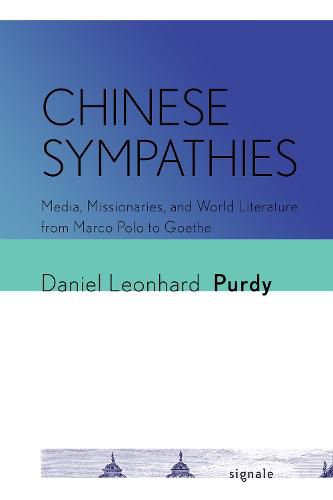Readings Newsletter
Become a Readings Member to make your shopping experience even easier.
Sign in or sign up for free!
You’re not far away from qualifying for FREE standard shipping within Australia
You’ve qualified for FREE standard shipping within Australia
The cart is loading…






Chinese Sympathies examines how Europeans-German-speaking writers and thinkers in particular-identified with Chinese intellectual and literary traditions following the circulation of Marco Polo’s Travels. This sense of affinity expanded and deepened, Daniel Leonhard Purdy shows, as generations of Jesuit missionaries, baroque encyclopedists, Enlightenment moralists, and translators established intellectual regimes that framed China as being fundamentally similar to Europe.
Analyzing key German literary texts-theological treatises, imperial histories, tragic dramas, moral philosophies, literary translations, and poetic cycles-Chinese Sympathies traces the paths from baroque-era missionary reports that accommodated Christianity with Confucianism to Goethe’s concept of world literature, bridged by Enlightenment debates over cosmopolitanism and sympathy, culminating in a secular principle that allowed readers to identify meaningful similarities across culturally diverse literatures based on shared human experiences.
Thanks to generous funding from Penn State University, the ebook editions of this book are available as Open Access volumes from Cornell Open (cornellopen.org) and other repositories.
$9.00 standard shipping within Australia
FREE standard shipping within Australia for orders over $100.00
Express & International shipping calculated at checkout
Chinese Sympathies examines how Europeans-German-speaking writers and thinkers in particular-identified with Chinese intellectual and literary traditions following the circulation of Marco Polo’s Travels. This sense of affinity expanded and deepened, Daniel Leonhard Purdy shows, as generations of Jesuit missionaries, baroque encyclopedists, Enlightenment moralists, and translators established intellectual regimes that framed China as being fundamentally similar to Europe.
Analyzing key German literary texts-theological treatises, imperial histories, tragic dramas, moral philosophies, literary translations, and poetic cycles-Chinese Sympathies traces the paths from baroque-era missionary reports that accommodated Christianity with Confucianism to Goethe’s concept of world literature, bridged by Enlightenment debates over cosmopolitanism and sympathy, culminating in a secular principle that allowed readers to identify meaningful similarities across culturally diverse literatures based on shared human experiences.
Thanks to generous funding from Penn State University, the ebook editions of this book are available as Open Access volumes from Cornell Open (cornellopen.org) and other repositories.